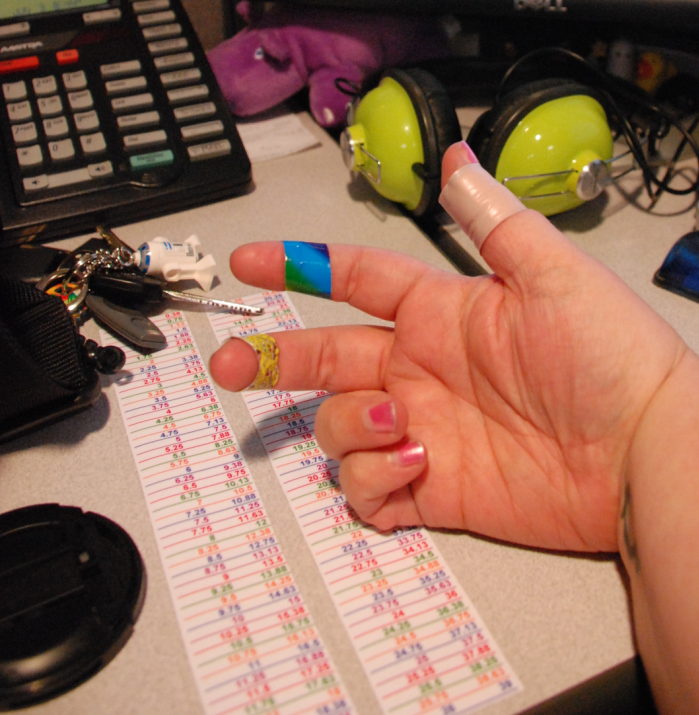A January 2015 Workers’ Compensation Research Institute (WCRI) study that focused on three new medication strengths has again questioned the practice of physicians dispensing medications. Some analysts argue that the new strengths are designed to skirt price controls and generate exorbitant profits for doctors and drug manufacturers and repackagers. But another explanation is possible: that doctors and drug companies have identified new strengths that patients want. In any case, competition will, over time, drive down prices on the new medications just as it did on ones that have been in the market for a long time.
The study titled, “"Are Physician Dispensing Reforms Sustainable?” prompted Michael Gavin, president of PRIUM, a subsidiary of Ameritox, to write an article titled "Physician Dispensing: I've Changed My Mind" on this website. He said: (1) ”that drug repackagers in California created novel dosages of certain medication to evade the constraints of the physician dispensing regulations”; (2) “allowing repackagers to create new NDC codes and charging exorbitant amounts of money for drugs that would have been substantially cheaper had they been secured through a retail pharmacy”; and (3) "Worse, utilization of these medications skyrocketed as a result of the revenue incentives for physicians (my conclusion, not WCRI’s)”.
This article analyzes the Cyclobenzaprine HCL medication, with emphasis on the new generic 7.5mg strength that was reviewed in the WCRI study and cited in the article, “Loophole for Doctors on Drug Dispensing,” that Ramona Tanabe from WCRI wrote for this website.
The 7.5mg Cyclobenzaprine HCL was first made available as a generic by the pharmaceutical company “KLE 2 Pharmaceuticals” ((www.kle2.com). The company's mission statement reads: “It is our goal to provide new therapies via unique strengths, delivery methods and/or new formulations.” KLE 2 identified a marketing opportunity to meet the needs of those who found that the 5mg strength was not effective enough and that the 10mg was too strong. There is evidence on the Internet of people attempting to split a Cyclobenzaprine HCL tablet to reduce its strength, with limited success.
From late 2011 through early 2013, KLE 2 was the only manufacturer of the generic Cyclobenzaprine HCL 7.5mg strength, which was included in the Medi-Cal formulary and used for California workers’ compensation claims. In April 2013, the manufacturer Mylan released a generic 7.5mg strength, and it was also included in the Medi-Cal formulary. KLE 2 has a Medi-Cal price of $3.2153 per tablet; Mylan, $3.99. The brand name “Fexmid,” by Sciele Pharma, owned by Shionogi, has a Medi-Cal price of $4.4383 per tablet.
Pharmaceutical pricing in the U.S. is unregulated; the more manufacturers there are, the lower the price to the consumer. In the case of the 7.5mg strength Cyclobenzaprine HCL, there are currently only two manufacturers, so the price will remain high until more manufacturers produce this strength or there is less demand for it. The 10mg strength, in comparison, has currently around 17 manufacturers. The average Medi-Cal price for 10mg is $0.1035. The lowest Medi-Cal price is $0.0468, from the manufacturer KVK Tech. (Refer to page 7 of "Understanding Pricing of Pharmaceuticals," available here under the Dialogue tab, for a Medi-Cal price comparison of 10mg Cyclobenzaprine HCL).
The 5mg strength is manufactured by about 11 pharmaceutical companies. The average Medi-Cal price is $0.1586 -- that is down from Mylan's price of $1.3616 in 2006. The current lowest Medi-Cal price for a 5mg strength tablet is $0.0468, again from KVK Tech.
I mentioned earlier that attempts to split either a 5mg or 10mg tablet in half have not been successful. It has been well documented that the coating applied to the 5mg and 10 mg Cyclobenzaprine HCL tablets does not allow them to be easily cut, regardless of the device used. The opportunity therefore for cutting a 5mg in half to take 1½ tablets of 5mg of Cyclobenzaprine HCL and accurately administer a strength of 7.5mg is not possible. The release of the 7.5mg strength addresses this need.
Although the 5mg, 10mg and now 7.5mg strengths are the most commonly dispensed Cyclobenzaprine HCL medications, there are also other strengths, such as the 15mg and 30mg extended-release capsules manufactured by Mylan, which have a Medi-Cal price of $8.7899 per capsule. There are also the brand name “Amrix” extended-release 15mg and 30mg capsules manufactured by Cephalon, a subsidiary of Teva Pharmaceuticals, which have a Medi-Cal price of $25.0163 per capsule for both strengths. These 15mg and 30mg strengths further illustrate how a lack of competition for a specific medication leads to higher prices.
Medi-Cal prices apply to all dispensers of California workers’ compensation medications, including pharmacies and physicians, and the same Medi-Cal maximum price has applied since 2007, as explained in my article, “The Paradox on Drugs in Worker’s Comp.” But the average prices paid, according to the WCRI study, are significantly higher than the Medi-Cal prices. The WCRI said prices paid for the 5mg and 10mg strengths were 35 to 70 cents a tablet, yet we find that the average Medi-Cal price was 10 cents for 10mg and 16 cents for 5mg. This discrepancy requires further clarification, because it appears that claims administrators have been paying significantly more than Medi-Cal's maximum price.
The WCRI reported a range of between $2.90 and $3.45 for the 7.5mg strength. The $2.90 price is lower than Medi-Cal's prices and indicates that a competitive price was paid by claims administrators.
If, as some have suggested, new strengths such as the 7.5mg are medically inappropriate, have claims administrators moved to remove the doctors who prescribe those strengths from their medical provider networks (MPNs)? Have claims administrators reported those doctors to the California Fraud Assessment Commission?
Gavin said in the second point I pulled from his article that medications dispensed by physicians cost more than those in retail pharmacies, but obtaining prices of Cyclobenzaprine HCL from a number of retail pharmacies on the website goodrx.com are higher than the average Medi-Cal price paid for the same medications to dispensing physicians. (Prices on the website can change at any time and cited here for illustration purposes only. The Medi-Cal formulary can also change at any time in both its suppliers of medications and prices paid.)
This analysis of the Cyclobenzaprine HCL medication further reinforces the need for claims administrators to be vigilant when dealing with pharmaceuticals. Let the buyer beware, too, when interpreting studies produced by organizations such as the WCRI.
An Argument for Physician Dispensing
While a recent WCRI study is being used to argue against having physicians dispense drugs, the data can be interpreted more innocently.





